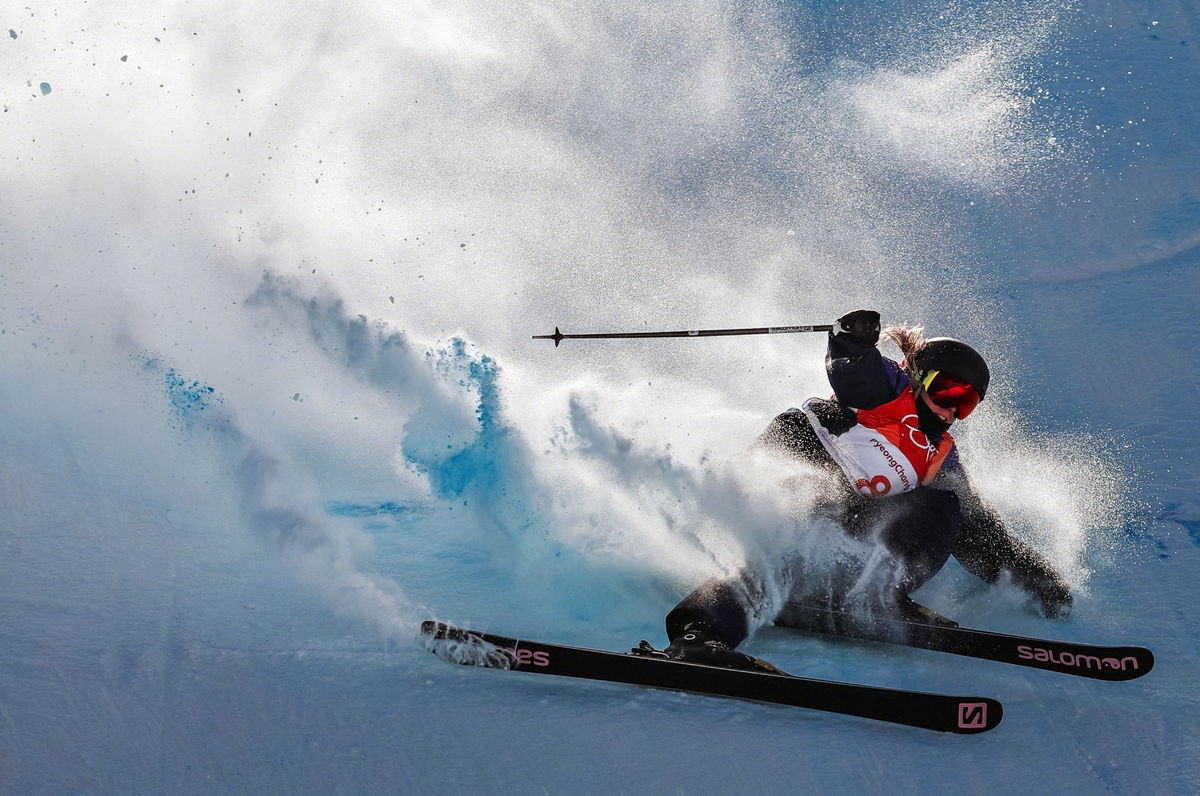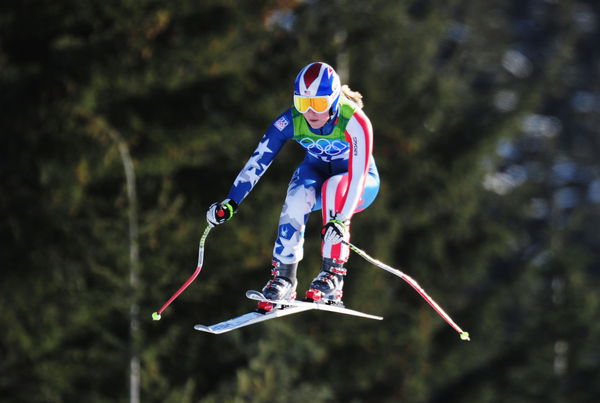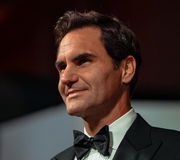
Getty
PYEONGCHANG-GUN, SOUTH KOREA – FEBRUARY 17: Katie Summerhayes of Great Britain crashes during the Freestyle Skiing on day eight of the PyeongChang 2018 Winter Olympic Games at Phoenix Snow Park on February 17, 2018 in Pyeongchang-gun, South Korea. (Photo by Ian MacNicol/Getty Images)

Getty
PYEONGCHANG-GUN, SOUTH KOREA – FEBRUARY 17: Katie Summerhayes of Great Britain crashes during the Freestyle Skiing on day eight of the PyeongChang 2018 Winter Olympic Games at Phoenix Snow Park on February 17, 2018 in Pyeongchang-gun, South Korea. (Photo by Ian MacNicol/Getty Images)
As 2024 has entered its last month of the year—just a year left for the next Winter Olympics. The host country, Italy, is struggling to fulfil its promise of the new bobsled, luge, and skeleton track before it starts in Milano-Cortina in 2026. It seems that the sliding test for those tracks will be delayed. But why is that? Though Italy had a track for such sports built for the 1956 Winter Games, the defunct track was demolished to form a new one.
Watch What’s Trending Now!
On top of that, the USA and others stepped in. Earlier, the IOC suggested that Italy’s Olympic organizing committee move the venue to Austria or Switzerland, where sliding tracks are already there. Additionally, some talks with the USOPC surfaced about their well-built sliding tracks. Let’s see where Italy’s Olympic Organising Committee currently stands.
The next Winter Olympics is scheduled to start from February 6, 2026, which is a little early for Milano-Cortina to make the big projects fully enabled. It seems an upheaval task for them. The project, which appeared to be a $100 million investment, failed to attract bids from any company. No company made their bid for building the track. Well, the construction, at last, started this year in the fall in Cortina d’Ampezzo. And now, the USOPC has extended their offers to their counterpart in Italy and to the IOC.
ADVERTISEMENT
USOPC is ready with their infrastructure way before the Winter Olympics 2034
Since the 2002 Winter Games, Salt Lake City has had sliding tracks for bobsled, luge, and skeleton competitions. They have maintained their venues as community facilities till now and come in handy in this need of the hour. Meanwhile, the USOPC, with ready-to-test tracks in March next year, the Salt Lake City-Utah for the games, has already grabbed their opportunity to have the Olympics in 2034. Additionally, it also adheres to the sustainability norms of the IOC’s current sustainability policy.

Getty
WHISTLER, BC – FEBRUARY 17: Lindsey Vonn of the United States competes during the Alpine Skiing Ladies Downhill on day 6 of the Vancouver 2010 Winter Olympics at Whistler Creekside on February 17, 2010 in Whistler, Canada. (Photo by Shaun Botterill/Getty Images)
Now, the USOPC extended its hands to help Milano-Cortina game organizers with their rebuilding activity. “Early on, when there is a question of viability of a sliding center in Italy, we raised our hands and said if you need support or need assistance, we are here to help,” said Sarah Hirshland, the CEO of USOPC, as reported by deseret.com.
ADVERTISEMENT
Here is an interesting similarity between the Milano-Cortina and Utah faces. During the 2002 Winter Olympics, Utha too struggled to build its sliding tracks due to the bad weather. Its construction was delayed at least one year from the first deadline. Owing to that experience, it seems the USOPC knows the massive work and its complicated technicalities to build such tracks. Extending their assistance in such a situation, Sarah Hirshland said, “…We will keep our fingers crossed. That is what is best for Milano-Cortina and what’s best for athletes, Team USA and others.” But there is still some hindrance looming in the matter.
ADVERTISEMENT
Salt Lake City, Utah, is still on the preparation track for the Winter Olympics
As the USOPC showed its preparedness for the infrastructure, it still lags behind in leadership formation. This is because the Organizing Committee for the Olympic Games (OCOG) has certain rules to follow with equity in men’s and women’s representation. For USOPC, the OCOG must devise a committee that includes athletes, businesses, and the political community for border strategic goals. Currently, the committee that successfully bid for the 2034 Winter Olympics is too large. However, the organizing committee for Utha’s Olympics and Paralympics games informed on December 16 that the OCOG will be announced next year.
Top Stories
Sean Payton Announces Retirement Plans as Broncos HC Demands Improvement From Bo Nix & Co. Before Playoffs

Greg Biffle’s $4M Worth Prized Possession Still Without a Buyer Leaves NASCAR Fans Heartbroken

LIV Golf Braces for Another Possible Exit in Wake of Brooks Koepka Departure

Biff Poggi All But Confirms Bryce Underwood’s Michigan Future After Announcing His Own Departure

Roger Federer Draws Criticism from Swiss Government Chief for Tourism Boom in Country

NASCAR World Mourns as Former Watkins Glen President Michael Printup Passes Away at 60

Moreover, in the Olympics, it is rare for the hosting country to move or rent venues from other countries. On such a rare occasion, it only happened twice. One of them happened to Melbourne, which, due to quarantine restrictions, had shifted its equestrian events to Stockholm in 1956. The other changes happened in 2008 when the Hong Kong Olympic Committee, which has its own OCOG, held the equestrian games for the Beijing Olympics.
ADVERTISEMENT
The example can help the Milano-Cortina Winter Olympics salvage their aspiration if their spiraling expense of the project and rapid building of the tracks meet its criteria in the next year.
ADVERTISEMENT
ADVERTISEMENT
ADVERTISEMENT

